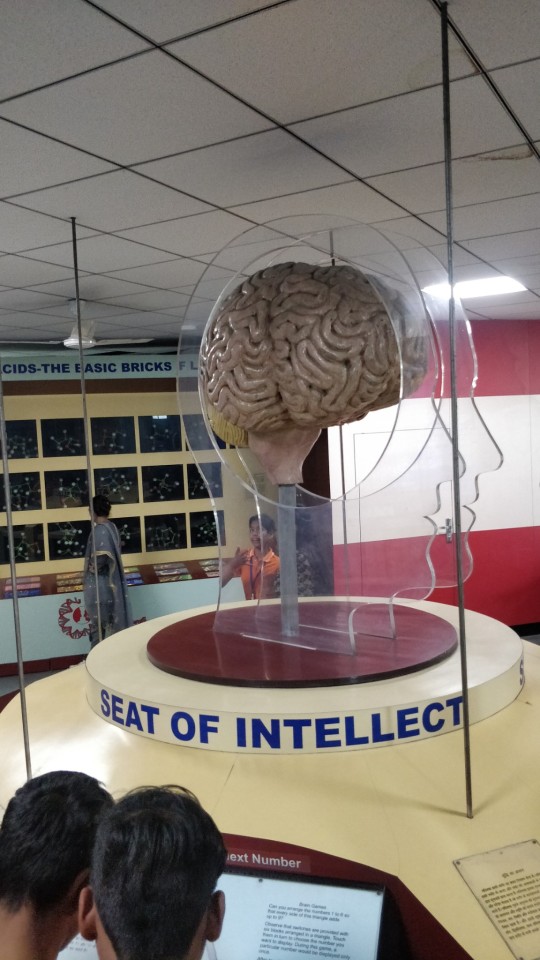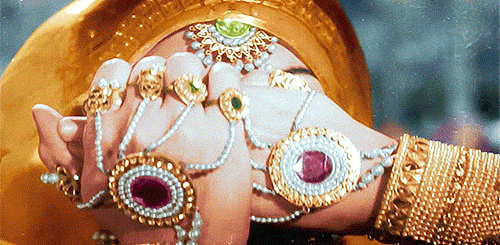#Nizamuddin Auliya
Text
The tonic of your words soothes
the melancholia of those yearning for the Real.
— Amir Khusrau, In the Bazaar of Love: The Selected Poetry of Amir Khusrau, to Nizamuddin Auliya, transl by Paul E. Losensky & Sunil Sharma, (2011)
#Indian#Amir Khusrau#In the Bazaar of Love#The Selected Poetry of Amir Khusrau#Paul E. Losensky#Sunil Sharma#(2011)#Nizamuddin Auliya#Essence
11 notes
·
View notes
Text









#dilli#featuring dillisaurus the protector of the city and companion to nizamuddin auliya the patron saint of the city
2 notes
·
View notes
Video
youtube
সাথী নাচে গানে মঞ্চ কাপালেন | দিল্লিতে নিজাম উদ্দিন আউলিয়া | Folk Song ...
#youtube#সাথী নাচে গানে মঞ্চ কাপালেন | দিল্লিতে নিজাম উদ্দিন আউলিয়া | Folk Song | Dillite Nizamuddin Auliya https://www.youtube.com/watch?v=eWUTCWSM
0 notes
Video
youtube
টিক টকের ভাইরাল গানে কাপালেন মঞ্চ বৃষ্টি সরকার । Dillite Nizamuddin Auli...
0 notes
Video
youtube
টিক টকের ভাইরাল গানে কাপালেন মঞ্চ বৃষ্টি সরকার । Dillite Nizamuddin Auli...
0 notes
Video
youtube
dillite nizamuddin auliya - ভিডিও পরিচালনায়ঃ রাজবাড়ী মিউজিক
1 note
·
View note
Text

Online Treasure of Sufi and Sant Poetry
Introduction
Understanding the Essence of Sufi and Sant Poetry
Define Sufi Poetry
Define Sant Vani
Importance and relevance in modern times
Sufi/Sant Poetry: A Rich Heritage
Historical Background
Origins of Sufi Poetry
Development of Sant Vani
Famous Sufi Poets and Their Contributions
Bulleh Shah
Rumi
Amir Khusro
Renowned Sant Poets and Their Works
Kabir
Tulsidas
Guru Nanak
Sant Vani: The Spiritual Songs
Definition and Importance of Sant Vani
Connection with spirituality and daily life
Prominent Themes in Sant Vani
Love
Devotion
Humanity
Notable Compositions in Sant Vani
Kabir's Dohas
Guru Nanak's Bani
Tulsidas' Ramcharitmanas
Sufi Qawwalis: The Soulful Melodies
Origins and Evolution of Qawwali
Historical context and cultural significance
Famous Qawwals and Their Contributions
Nusrat Fateh Ali Khan
Sabri Brothers
Abida Parveen
Impact of Qawwalis on Society
Influence on music and cinema
Role in spiritual gatherings
Sufi Kalam: The Divine Verses
Meaning and Importance of Sufi Kalam
Spiritual and philosophical insights
Key Figures in Sufi Kalam
Rumi
Hafez
Shah Hussain
Popular Sufi Kalam Collections
Mathnawi by Rumi
Diwan-e-Hafiz
Heer Ranjha by Waris Shah
E-Books: Accessing the Treasure
Availability of Sufi and Sant Poetry E-Books
Benefits of digital access
Top Online Platforms for Sufi and Sant E-Books
Sufinama
RekhtaBooks
Project Gutenberg
Recommended E-Books for Sufi and Sant Poetry
"The Essential Rumi" by Coleman Barks
"Songs of Kabir" by Rabindranath Tagore
"The Conference of the Birds" by Attar of Nishapur
Conclusion
The Continuing Relevance of Sufi and Sant Poetry
Modern interpretations and adaptations
Influence on contemporary literature and art
Exploring Further
How to engage with and study Sufi and Sant poetry
Online resources and communities
Example Content Sections:
Understanding the Essence of Sufi and Sant Poetry
Sufi and Sant poetry are two deeply spiritual and philosophical traditions that have enriched the cultural and literary heritage of South Asia and beyond. Sufi poetry, often associated with mysticism and the quest for divine love, is known for its profound depth and emotional resonance. Sant Vani, on the other hand, comprises the devotional songs of the Sant tradition, emphasizing ethical living, devotion to God, and social equality.
These poetic forms have not only provided spiritual solace to millions but have also acted as a medium for social reform, challenging rigid societal norms and advocating for a more inclusive and compassionate worldview.
Famous Sufi Poets and Their Contributions
Bulleh Shah
Bulleh Shah is one of the most celebrated Sufi poets whose verses transcend the boundaries of time and culture. His poetry, written in Punjabi, is a testament to his profound spiritual journey and his quest for unity with the Divine. Bulleh Shah’s works, such as "Bulleya Ki Jaana Main Kaun," are timeless classics that continue to inspire and resonate with readers around the world.
Rumi
Jalal ad-Din Muhammad Rumi, more commonly known as Rumi, is perhaps the most famous Sufi poet in the world. His works, written in Persian, have been translated into numerous languages and are widely read across the globe. Rumi’s poetry, encapsulated in his magnum opus "Masnavi," explores themes of divine love, the soul’s journey towards God, and the nature of existence.
Amir Khusro
Amir Khusro, a prolific Persian poet and a disciple of Nizamuddin Auliya, made significant contributions to Sufi literature and music. He is often credited with the invention of several musical instruments and the development of new genres of poetry. His ghazals and qawwalis are integral to the Sufi musical tradition and continue to be performed with great reverence.
Prominent Themes in Sant Vani
Sant Vani, the poetic expressions of the Bhakti saints, often revolve around themes of love, devotion, and social justice. The Bhakti movement, which gave rise to Sant Vani, sought to transcend the barriers of caste and creed, promoting a direct and personal relationship with the Divine.
Love and Devotion
The Bhakti saints, such as Kabir and Guru Nanak, emphasized the importance of love and devotion in their teachings. Kabir’s dohas (couplets) are renowned for their simplicity and profound wisdom, urging individuals to seek the Divine within themselves and to practice love and compassion in their daily lives.
Humanity and Social Equality
The Bhakti poets often used their verses to challenge societal norms and advocate for social justice. Guru Nanak, the founder of Sikhism, composed hymns that spoke against the caste system and gender discrimination, promoting the ideals of equality and universal brotherhood.
Famous Qawwals and Their Contributions
Qawwali, a form of Sufi devotional music, has a rich history and a profound impact on South Asian culture. This genre, characterized by its repetitive and hypnotic melodies, is designed to induce a state of spiritual ecstasy and divine connection.
Nusrat Fateh Ali Khan
Nusrat Fateh Ali Khan is often hailed as the greatest qawwal of all time. His powerful voice and emotive renditions of Sufi poetry have captivated audiences worldwide. His contributions to qawwali music have not only preserved this ancient tradition but also brought it to the global stage, influencing musicians across various genres.
Sabri Brothers
The Sabri Brothers, a legendary qawwali group from Pakistan, are known for their dynamic performances and soulful renditions of Sufi poetry. Their qawwalis, such as "Bhar Do Jholi Meri" and "Tajdar-e-Haram," are celebrated for their spiritual fervor and emotional depth.
Abida Parveen
Abida Parveen, one of the most iconic female Sufi singers, has made significant contributions to the world of Sufi music. Her powerful and evocative voice has brought the poetry of Sufi saints to life, making her one of the most revered figures in the genre.
Recommended E-Books for Sufi and Sant Poetry
For those looking to delve deeper into the rich traditions of Sufi and Sant poetry, numerous e-books are available online. These digital collections provide a convenient way to explore the profound wisdom and spiritual insights of the Sufi and Bhakti poets.
"The Essential Rumi" by Coleman Barks
This renowned translation of Rumi’s poetry by Coleman Barks captures the essence of Rumi’s mystical and spiritual insights. The book includes some of Rumi’s most famous poems, making it an essential read for anyone interested in Sufi literature.
"Songs of Kabir" by Rabindranath Tagore
Rabindranath Tagore’s translation of Kabir’s dohas brings the profound wisdom of this Bhakti saint to a global audience. The book offers a selection of Kabir’s most insightful and thought-provoking verses, providing a glimpse into his spiritual teachings.
"The Conference of the Birds" by Attar of Nishapur
This classic Persian poem, written by the Sufi poet Attar of Nishapur, is an allegorical journey of the soul towards enlightenment. The book, available in various translations, is a profound exploration of Sufi philosophy and spiritual quest.
5 notes
·
View notes
Text

,Main Nijaam Se Naina
I Stole A Glance From Nizam!
POET AMIR KHUSRO
Saajan preet lagaai ke
Piya door des mat ja
Baso hamaari naagari
Ham maange tu kha
Khusro nadiya prem ki
So ulti va ki dhaar
Jo nikla so to doob gaya
Aur jo dooba so hua paar
Ghar-naari ganvaari chaahe so kahe
Main Nijaam se naina laga aayi re
Ve Bulleya chal otthe chaliye
Jitthe rehende saare anne
Na koi saaddi zaat pehchaane
Na koi saannu manne
Main Nijaam se naina, manmohan se naina
Main Nijaam se naina laga aayi re
Ghar-naari ganvaari chaahe so kahe
Ek sooratiya ki do hain mooratiya
Ek Raam aur ek Rahim
Bhool bhi jaaiye kahin
Saari izaafaton ki baat
Vaham-e-dui bhi kufr hai
Ek vajood, ek zaat
Sohni soorat mohni moorat va ki
Main to hirday beech sama aayi re
Ghar-naari ganvaari…
Khusro Nijaam ke bal bal jaiye
Va ke bal bal jaiye
Main to anmol cheri bik aayi re
Ghar-naari ganvaari…
Note by scholar Homayra Ziad:
1. Nijam: Nizamuddin Auliya (died, 1325), Ameer Khusro’s beloved spiritual guide, was known as Mahbub-e-Ilahi – the Beloved of God. Under his influence, the Chishti Sufi order spread throughout the sub-continent. Khusro died soon after his shaykh in 1325 and is buried next to him in the Nizamuddin dargah in Delhi. Khusro writes this poem in the voice of a young woman, returning giddy after a meeting with her lover. Looking straight into the eyes of one’s shaykh is the greatest honour, a transfer of blessings (barkat).
#urdu poetry#sufism#amir khusro#rumi#qawwali#nfak#bollywood#retro art#urdu literature#literature#shayari
20 notes
·
View notes
Text
Aziz
(just as the title says- for someone special)
//
kal shab neend aashna nahi hui humse,
kisi murshid ki baaton mein dil dooba raha.
kya sahi, kya ghalat, ek bebasi ki chhai rahi,
aur khud ko buland karne ka mansooba raha.
kal shab neend aashna nahi hui humse…
kuchh unki zubaan ke teer aarpaar hue,
kuchh toh meri dillagi bhi tham si gai,
kuchh toh kaaynat ka bhi yeh aalam tha,
raaz humein khole, raay unki marham si rahi.
kal shab neend aashna nahi hui humse…
haafiz mere, aapka shukriya ho kaise?
jab saamne hon hi nahi toh adaab adaa ho kaise?
gale se lagaa lun tumhe ya palakon pe sajaaun,
khusro ko mila nizamuddin auliya ho jaise.
kal shab neend aashna nahi hui humse…
//
8 notes
·
View notes
Text

"One day, this world will be a graveyard, and the angels will be its mourners."
— Hazrat Nizamuddin Auliya
11 notes
·
View notes
Text
"One day, this world will be a graveyard, and the angels will be its mourners."
— Hazrat Nizamuddin Auliya
#islam#islamic quotes#islamicquotes#islamic quote#islamicquote#muslims#Allah#wisdom of islam#islamic wisdom
8 notes
·
View notes
Text
youtube
"Sakal Ban Phool Rahi Sarson" | Sara Raza | Sufi Song | Amir Khusro | Virsa Heritage Revived
From the youtube channel Gaana Shaane.
The beautiful and talented Sara Raza Khan is Pakistani singer.
Amir Khusrau (1253-1325) was major Indian Muslim mystic, poet and musician who lived in Delhi and wrote mostly in Persian, but also in Hindavi, the common language of the northern and central regions of the Indian Subcontinent in that period.
I found on the net the following transliteration and translation of this poem (which must be in Hindavi):
Sakal Bun
Sakal bun (or Saghan bhun) phool rahi sarson,
Sakal bun phool rahi.....
Umbva phutay, tesu phulay, koyal bolay daar daar,
Aur gori karat singaar,
Malaniyan gadhwa lay aayin karson,
Sakal bun phool rahi.....
Tarah tarah kay phool lagaaye,
Lay gadhwa haathan mein aaye.
Nijamudin kay darwazay par,
Aawan keh gaye aashaq rung,
Aur beet gaye barson.
Sakal bun phool rahi sarson.
Translation-
The yellow mustard is blooming in every field,
Mango buds are clicking open, other flowers too;
The koyal chirps from branch to branch,
And the maiden tries her make-up,
The gardener-girls have brought bouquets.
Colourful flowers of all kinds,
In hands everyone’s bringing;
But Aashiq-rung (the lover), who had promised to come
To Nizamuddin’s house in spring,
Hasn’t turned up - its been years.
The yellow mustard is blooming in every field.
Source: https://allpoetry.com/Sakal-Bun
The Nizamudin of the poem is Hazrat Nizamudin Auliya (1238-1325), one of the greatest Sufi saints in the Indian Subcontinent and Khusrau’s spiritual master.
11 notes
·
View notes
Video
youtube
Dillite Nizamuddin Auliya || দিল্লিতে নিজাম উদ্দিন আউলিয়া || অঞ্জনা সরক...
#youtube#Dillite Nizamuddin Auliya || দিল্লিতে নিজাম উদ্দিন আউলিয়া || অঞ্জনা সরকার খাজা শান।। Baul Song https://www.youtube.com/watch?v=GoKoeGICKuk
0 notes
Video
youtube
টিক টকের ভাইরাল গানে কাপালেন মঞ্চ বৃষ্টি সরকার । Dillite Nizamuddin Auli...
0 notes
Photo

Hazrat Amir Khusrau R.A was a prolific poet who wrote in Persian and Hindi. "Man Kunto Maula": This poem is a tribute to his spiritual mentor, Nizamuddin Auliya. The first line, "Man kunto Maula, fa haza Ali-un Maula," means "Whoever accepts me as a master, Ali is his master too." Listen & Download free from our website sung by ustad Nusrat Fateh Ali Khan Sahib click link: https://ift.tt/t7xJANF https://ift.tt/lNrq5fk
2 notes
·
View notes
Text
Anachronism in Bridgerton is one thing, but this is whole another level of wrong

Mirza Ghalib, is one of the famous Urdu poet in India. I know western media is suddenly so preoccupied with the Brown population since India’s rise in global stature and the Indian Educated Diaspora becoming strong and aware with every passing moment, but if they think dropping any name just like that will get the minds of happy Indians, they are so wrong.
First of all in 1813, Mirza Ghalib wasn’t even in the poetic center. Although he started writing in the age of 11, but he still had far and wide to go until he reaches that level. He was in the Mughal court during the 1850s, especially with the patronage of Bahadur Shah Zafar, the last Mughal emperor. Do You know who would have been in Delhi Throne when Edwina is in London? Jahandar Shah... a person who couldn’t have been there without the help of the Wazir, Zulfikar Khan.
Now, what she should have said instead, what are the some of the most famous poets of that time? Honestly, I cannot remember any iconic names (because I am not well versed at the subject of Urdu or Persian poetry) other than Amir Khusroo: a historian, a poet and a singer. His “Chaap Tilak” ghazal was dedicated to his guru Nizamuddin Auliya would have been perfect because it sounds like a romantic dedication, something Edwina would want to do.
It is also inherently strange for Western Media to get things anachronically wrong when they preached Indians for many years what or how they should view their history.
5 notes
·
View notes